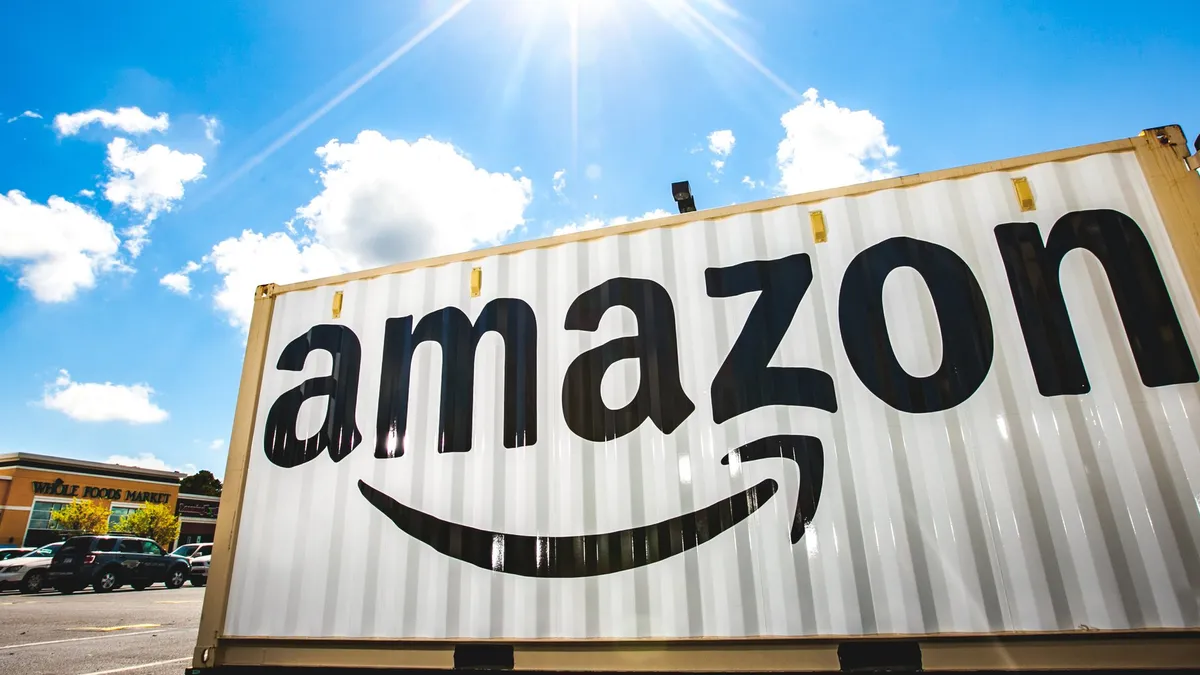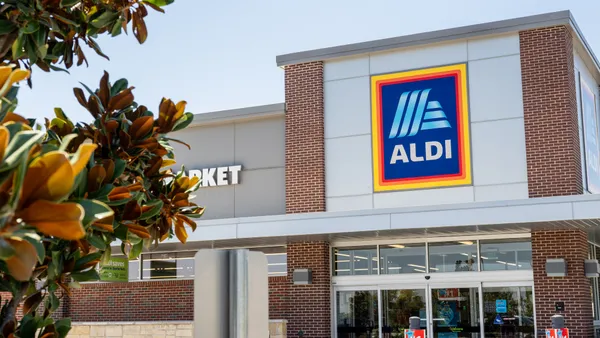Dive Brief:
- Amazon is using its Woodland Hills, California, supermarket as a dark store to fill online grocery orders, the company's vice president of grocery, Stephenie Landry, wrote in an update. The unnamed store was originally scheduled to open in February.
- The company also said it will introduce a feature across Amazon's e-commerce system allowing shoppers to reserve a time to shop “in the coming weeks.” The retail giant said it has increased online grocery fulfillment capacity by 60% in recent weeks.
- Amazon also said it’s limiting hours at select Whole Foods stores in order to devote more time to filling online orders. According to a post on food technology site Hngry.tv, Whole Foods has closed at least one store and devoted it exclusively to online fulfillment.
Dive Insight:
As online grocery demand continues to rocket upwards, Amazon is using any available fulfillment space it has to fill orders — including entire stores.
Amazon’s Woodland Hills store was slated to become the first opening in the company’s as-yet-unnamed supermarket chain. But as is the case with so many other retailers, the novel coronavirus pandemic has put the store opening on hold as foot traffic wanes and online traffic surges. Now, the location operates as a small grocery e-commerce warehouse.
According to Hngry.tv's post, Amazon’s Woodland Hills store is fulfilling orders for delivery and pickup from four nearby Whole Foods stores. The post includes pictures of Amazon Flex drivers accepting orders from the location.
The company’s dark store strategy extends to Whole Foods' Bryant Park location in Manhattan, which is temporarily closed to fill delivery and pickup orders, Hngry.tv reported. The company could turn off additional stores to foot traffic in the coming weeks, both existing locations and those under development, depending on market-level demand.
Whole Foods has scores of locations in city centers where online grocery demand is highest right now. The company could follow the same strategy as Giant Eagle by converting one store in major markets to dark operations. In central Ohio, Giant Eagle has doubled its online grocery capability since converting a store in Akron to pickup- and delivery-only service. Kroger is piloting a similar approach in its hometown of Cincinnati.
In recent months, Whole Foods has converted store space to online fulfillment in places like Philadelphia. There, the retailer replaced an Allegro Coffee shop with racks for online orders.
In addition to dedicating new fulfillment space to the challenge, Amazon has hired scores of warehouse workers. Last month, the company temporarily shut down its Prime Pantry service. The company said it will continue building out fulfillment capacity while also implementing new services like its reserve-a-slot shopping tool. Still, Amazon said in the meantime shoppers can continue to expect long waits for service.
"While we have increased order capacity by more than 60 percent due to COVID-19, we still expect the combination of restricted capacity due to social distancing and customer demand will continue to make finding available delivery windows challenging for customers," Landry wrote in her update.










